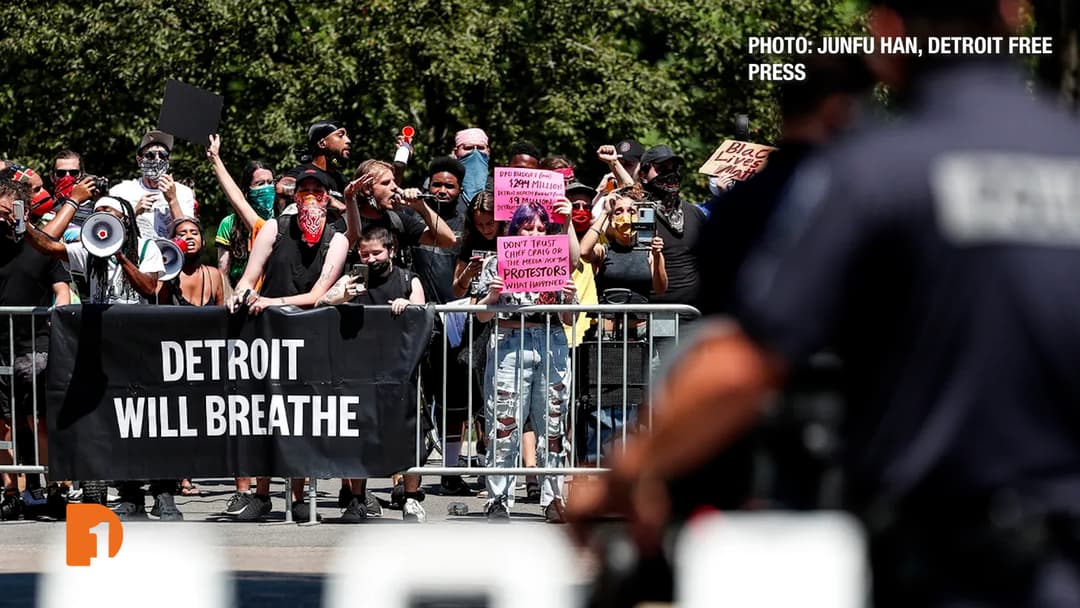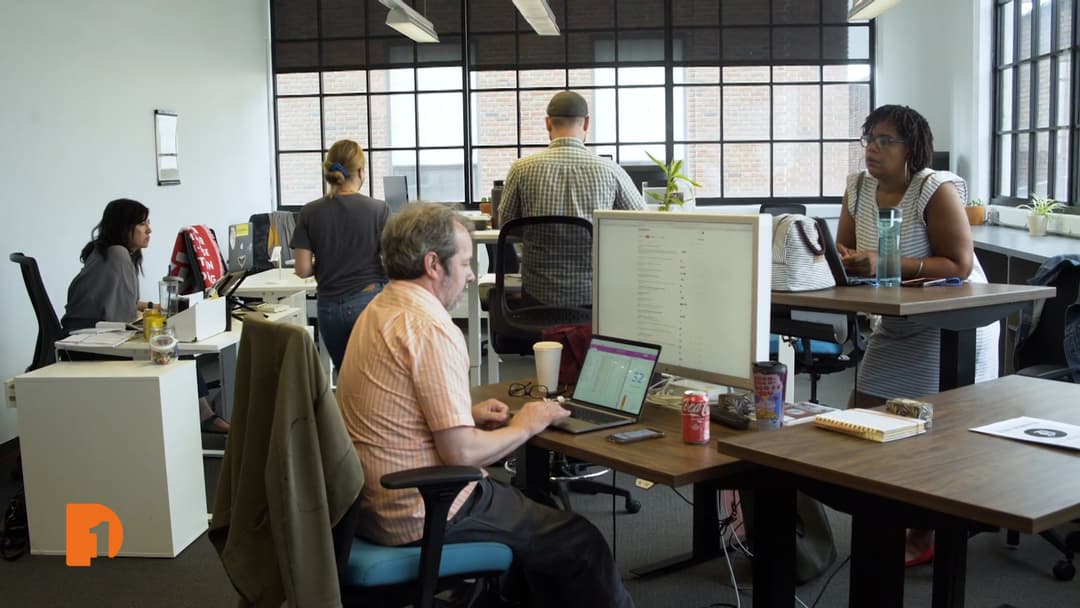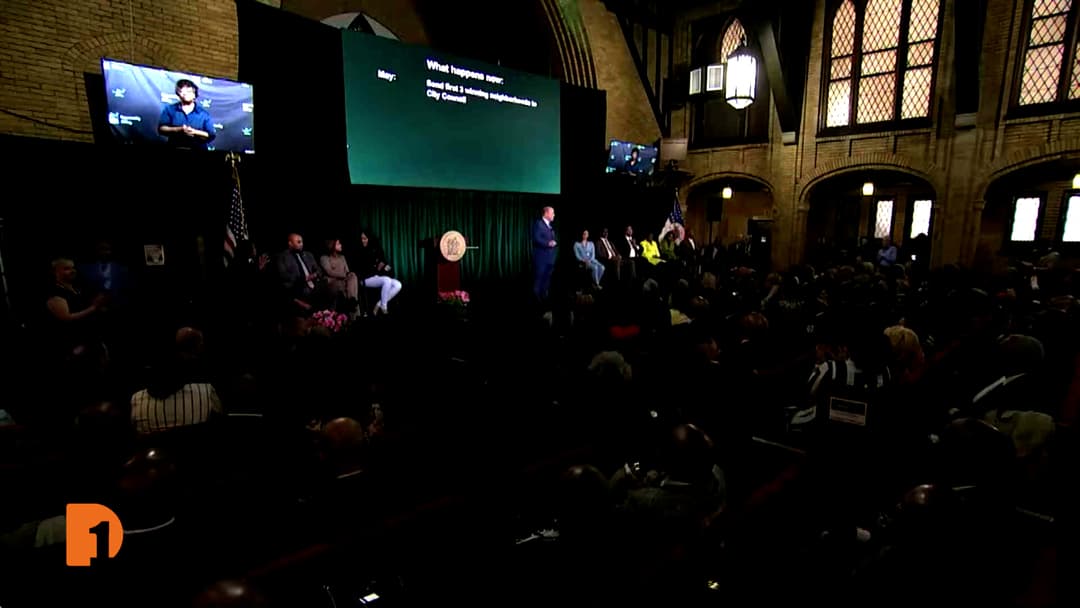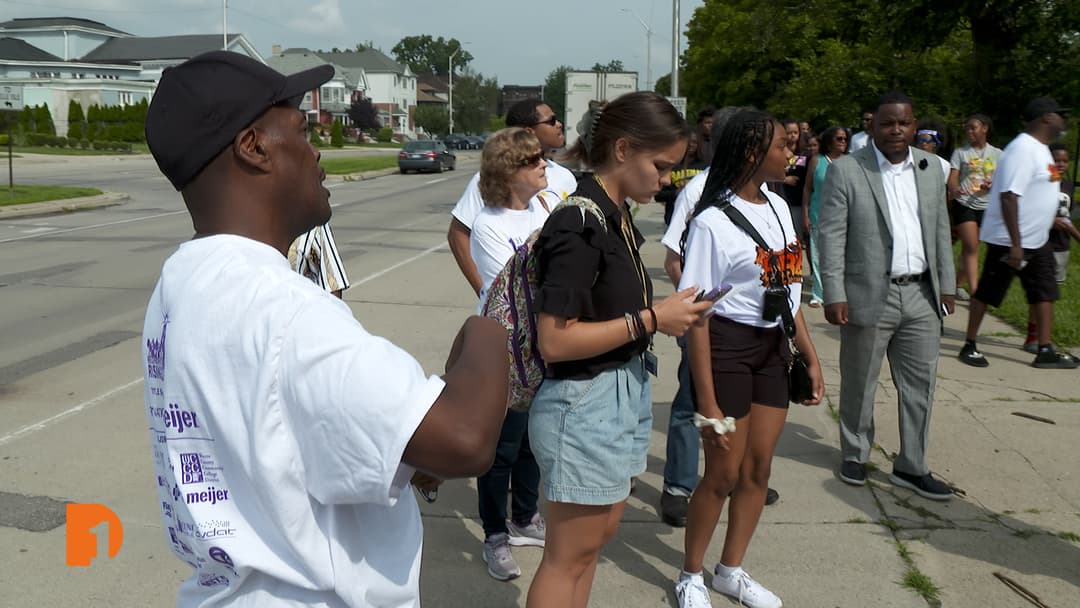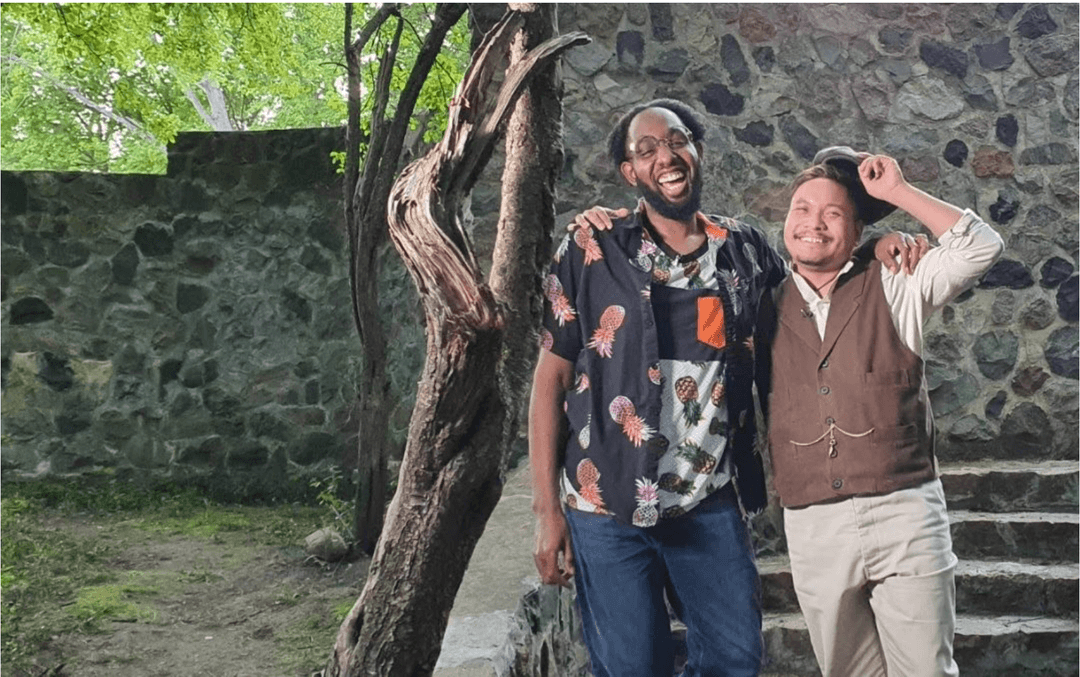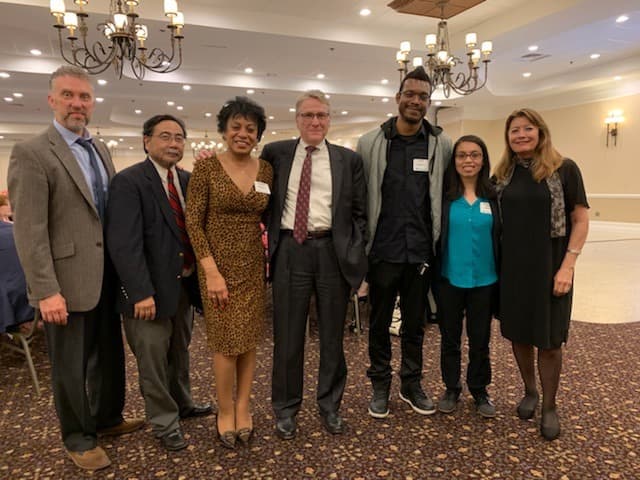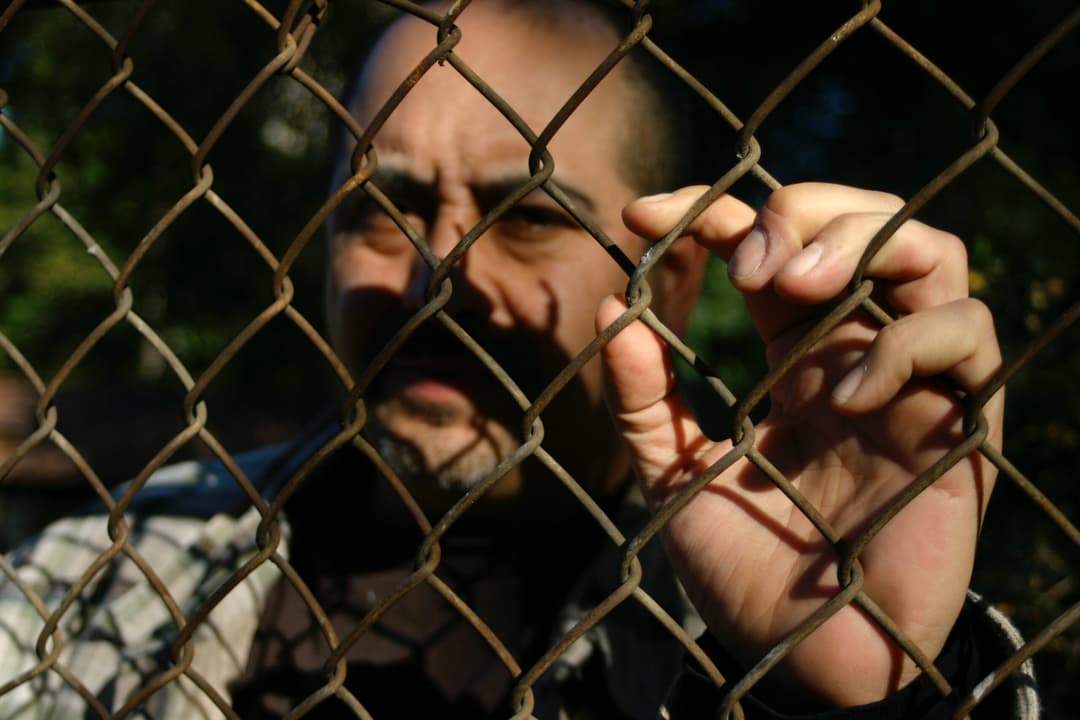
Detroit PBS and Community Development Advocates of Detroit host community conversations to bolster neighborhood participation in the region’s journalism
Jun 12, 2018
Local residents share views about the problems and promise of their comeback city in Detroit Journalism Engagement Fund pilot program.
The group of young black men under 30, who make up most of Detroit’s Church of the Messiah congregation, initially were skeptical when they learned Detroit Public Television wanted to sit down with them and listen to their stories about the challenges in their east side neighborhood. The Islandview neighborhood residents were pleasantly surprised that a local media outlet was interested in what they had to say about the community’s needs. They were even more surprised when the station’s leaders came back a second time, with no agenda but to listen to them.
“Our members truly felt heard and understood,” Rev. Barry Randolph, pastor at Church of the Messiah, said. “We are going to have an equitable community. That needs to be our concentration more than anything else.”
The newfound relationship between DPTV and the residents of Islandview is made possible by the Detroit Journalism Engagement Fund, a $900,000 initiative started in 2017 by the Community Foundation for Southeast Michigan, the John S. and James L. Knight Foundation and the Ford Foundation. The Fund aims to expand local reporting in Detroit, increase diversity and equity in newsrooms, and to involve residents in telling the story of Detroit’s future. The first round of grants, supporting six innovative projects, were awarded in December.
DPTV knew it would need help to bridge the divide that sometimes exists between media and community members when station leaders decided to enhance efforts to connect with city residents. The public television station partnered with Community Development Advocates of Detroit (CDAD) and Detroit Metropolitan Area Communities Study, which helped bring residents to the table. Sarida Scott, executive director of CDAD, reached out to leaders of other civic groups and facilitated the discussions. Community organizations were key to the success of the pilot program. The Church of the Messiah provided meeting space.
“We wanted a community conversation,” said Scott, who brought together media and community citizens. “We started out by asking, ‘would you be interested in sharing your stories.’”
Residents of the Islandview neighborhood, which includes Belle Isle Park, had a lot to say. They talked about the importance of knowing and supporting neighbors and discussed the need for “affordable and liveable” housing, addressed public safety issues including fears of gun violence, frustrations about human trafficking and concerns about a growing number of missing children in the area. They also discussed the area’s spirit of entrepreneurship and the importance of neighbors supporting each other. DeMarco Muhammad of the Helping Hands Community Center talked about the black men who have returned from being incarcerated who have gone on to get degrees, start businesses and employ others yet they are marginalized. DPTV learned about businesses started out first in the church’s basement including a bike shop, a video production company and Nikki’s Ginger Tea, now carried locally at Whole Foods.
In March DPTV launched Tale of Two Cities: The Other Detroit, which highlighted portions of the discussion. The goal: learn more about neighborhood problems and develop community-based solutions. Islandview, along with the Fitzgerald and Delray neighborhoods, will be the featured communities in the series.
While residents appreciated the value placed on their opinions about what Detroit needs to thrive, for DPTV, the conversations have enlightened their storytelling. The discussions have transformed the station’s approach to developing and reporting news stories. “We’ve started to broaden our thinking about how we’re going to handle these topics,” said Ed Moore, director of content at Detroit Public Television. “We found that there are stories waiting to be told and we want to tell them.”
The station didn’t just parachute in and out. They went first just to listen, then returned to probe the issues raised more deeply and ask questions. The conversations will help DPTV more effectively cover the news in communities participating in the project.
The community conversations “put us on to story ideas we would never have gone after, and it has changed our view,” Moore said.
By developing an ongoing relationship with residents and building trust, the station is able to publish deeper, more nuanced stories. “I hope this trust we are developing will pull more people in,” Scott said.
The pilot program also has expanded the pool of people the station can call when working on a story and has helped DPTV cultivate more diverse sources, strengthening its journalism.
“This community meeting was a launching pad,” Moore said. “We’re using this to rethink how we gather stories.”
Stay Connected
Subscribe to One Detroit’s YouTube Channel.
Catch the daily conversations on our website, Facebook, Twitter, and Instagram @detroitperforms
Related Posts
Leave a Reply
Your email address will not be published. Required fields are marked*
